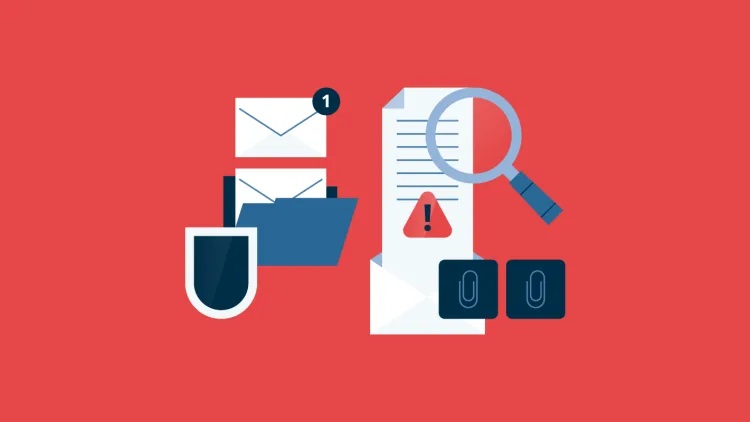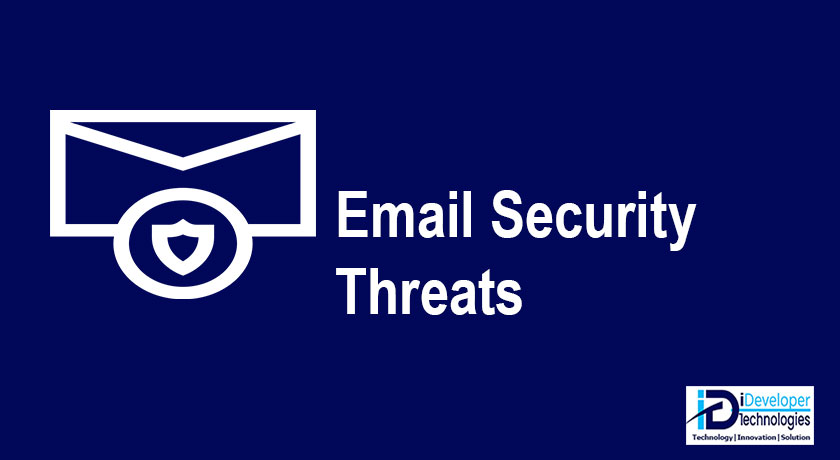We recommend conducting a cctv installation site survey before installing a surveillance system and documenting…

Why Email Security is Important for SMEs in Kenya
Why Email Security is Important?
Email Security for Small Business is must have In the digital age. Email has become an integral part of our personal and professional lives. It’s a primary means of communication, and while it offers incredible convenience, it also presents significant security risks.
Relying on your built-in security could expose your company to cybercriminals who frequently take advantage of the number one attack vector: taking advantage of human nature and lax security. Over 90% of assaults on enterprises begin with a malicious email. This brings about the need to invest in comprehensive cyber security solutions
Why Is Email the Number 1 Attack Vector?
Since practically every business uses email and the average employee receives a lot of emails, emails are an efficient initial infection channel. An employee is lured into a false sense of security by the overwhelming volume of emails because they have little time to dedicate to each one. This is used by cybercriminals in phishing attempts, which have increased in frequency and potency along with the popularity of cloud-based email.
Why the built-in security you have is inadequate?
Email Secuirty is key for many small business. Majority of SMEs rely on the built-in security settings for Microsoft 365 or other configuration choices made available by their cloud email provider. However, a number of email-based risks are not sufficiently mitigated by these settings:
Zero-Day Malware: Many email security solutions rely on malware detection that is based on signatures. Zero-day attacks won’t be able to be recognized and stopped by this before they affect the business network.
Social engineering and business email compromise (BEC): Not all phishing emails contain malware or phishing links, for example. They mislead the user into performing an action, such as sending money to a specific bank account. These attacks will be completely missed by email security solutions that solely scan for malware or phishing links.
Does I need Email Security for my Small Business?
One of the most common methods used by corporations to interact with clients, prospects, business partners, vendors, and other companies is email. enterprises frequently ignore the security implications that this can have on enterprises of all sizes and industries since there are so many emails sent and received every day.
In this detailed blog, we’ll explore the importance of email security, the threats it mitigates, and best practices for protecting your digital communications.
The Pervasiveness of Email:
Email is the most widely used communication channel globally. Billions of emails are sent daily, making it a prime target for cybercriminals. This ubiquity provides attackers with numerous opportunities to exploit this medium.
Phishing Threats:
Email is a common vector for phishing attacks. Cybercriminals send deceptive emails, often masquerading as trusted entities, to trick recipients into revealing sensitive information like login credentials, credit card details, or personal information.
A phishing email is made to take advantage of the workers at your company by using social engineering. An attacker can steal login information and other personal data or infect the employee’s machine with malware if they can persuade a user to click on a malicious link or open an infected attachment. The cybercriminal can then gain more access to the corporate network and steal sensitive information or launch other assaults. This emphasizes the need for Email Security for Small Business.
Disadvantages of Phishing Threat
Malware Distribution:
Malware, including viruses, ransomware, Trojans, and spyware, is frequently spread through email attachments or links. Opening an infected attachment or clicking a malicious link can lead to system compromise and data loss.
Business Email Compromise (BEC):
BEC attacks involve impersonating high-ranking executives or partners within a company to deceive employees into transferring funds or confidential information. BEC scams have caused massive financial losses for businesses
Credential Theft:
Attackers use phishing emails to steal login credentials for various accounts. These stolen credentials can be monetized on the dark web or used to access sensitive information.
Email Spoofing:
Email spoofing is a technique where the attacker alters the “from” address to appear as a trusted source. This is often used to deceive recipients and gain their trust.
Data Privacy Concerns:
Emails frequently contain sensitive information, including personal and financial data. A breach could result in data exposure, identity theft, and regulatory fines for non-compliance with data protection laws.
Intellectual Property Breach:
Many organizations send valuable intellectual property and proprietary information via email. A security breach could lead to the theft of these assets or their unauthorized disclosure.
Regulatory Compliance:
Various industries have strict regulatory requirements regarding the security and privacy of electronic communications. Failure to comply with these regulations can result in hefty fines and legal consequences.
Email-Based Attacks on Reputation:
A successful email-based attack can tarnish an individual’s or organization’s reputation. People may lose trust in a brand that appears to be compromised, affecting customer relationships and business operations.
Financial Impact:
Recovering from email-based attacks can be costly. Organizations may need to invest in cybersecurity measures, legal assistance, and public relations efforts to restore their operations and reputation.
Protection of Confidential Information:
Email often contains confidential business communications, contracts, and agreements. Email security ensures that only authorized recipients have access to these critical documents.
Intellectual Property Breach:
Many organizations send valuable intellectual property and proprietary information via email. A security breach could lead to the theft of these assets or their unauthorized disclosure.
Regulatory Noncompliance:
Various industries have strict regulatory requirements regarding the security and privacy of electronic communications. Failure to comply with these regulations can result in hefty fines and legal consequences.
Business Continuity:
Email is essential for day-to-day operations. Security breaches can disrupt communications, leading to downtime and productivity losses.
Personal Privacy Breach:
On a personal level, email security protects individuals from identity theft, financial fraud, and other malicious activities.
Read: Get Email Security Audit Report
BEST PRACTICES FOR EMAIL SECURITY:
To safeguard your digital communications, consider implementing the following best practices:
Strong Passwords:
Use complex, unique passwords for your email accounts and change them regularly.
Two-Factor Authentication (2FA):
Enable 2FA to add an extra layer of security to your email accounts.
Email Encryption:
Use end-to-end encryption tools for sensitive communications.
Regular Updates:
Keep your email client, operating system, and security software up to date.
Awareness Training:
Educate yourself and your organization about email security best practices and common threats.
Spam Filters:
Use robust email filtering to reduce the likelihood of phishing and malware-laden emails reaching your inbox.
Email Authentication:
Implement SPF, DKIM, and DMARC protocols to prevent email spoofing.
Backup Your Data:
Regularly back up your email data to mitigate the impact of ransomware or data loss.
Security Software:
Install and regularly update antivirus and anti-malware software.
Secure Communication Channels:
For sensitive information, use secure communication channels, such as encrypted messaging services.



